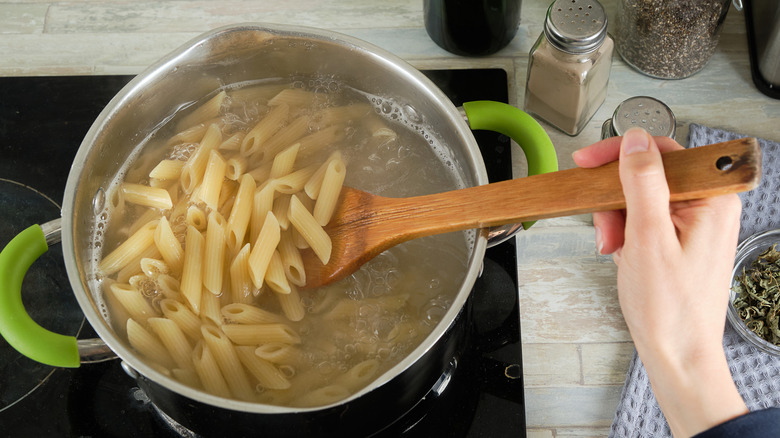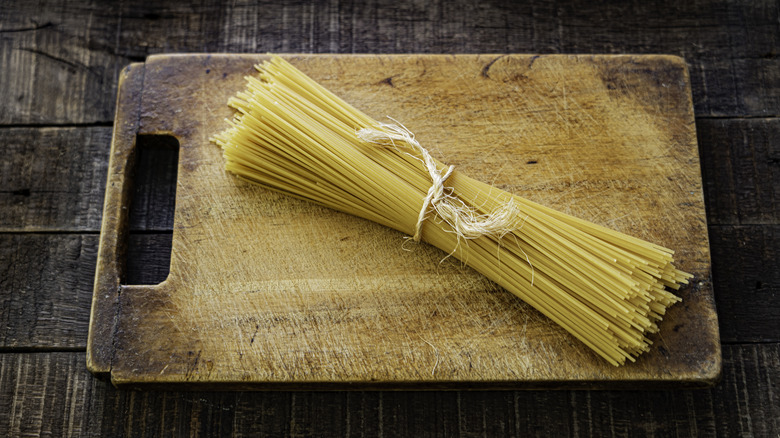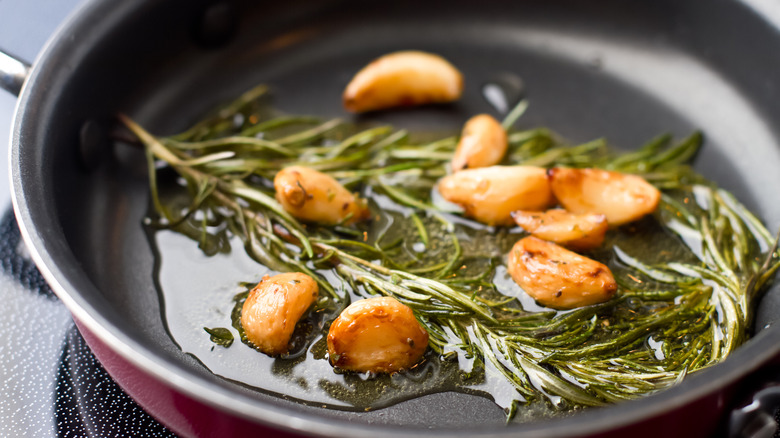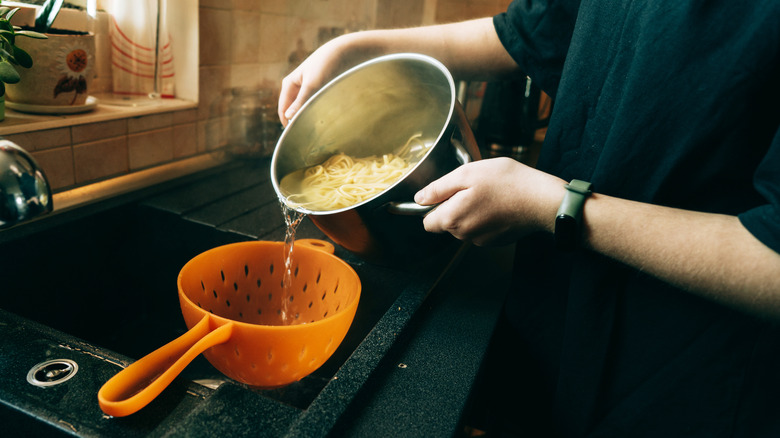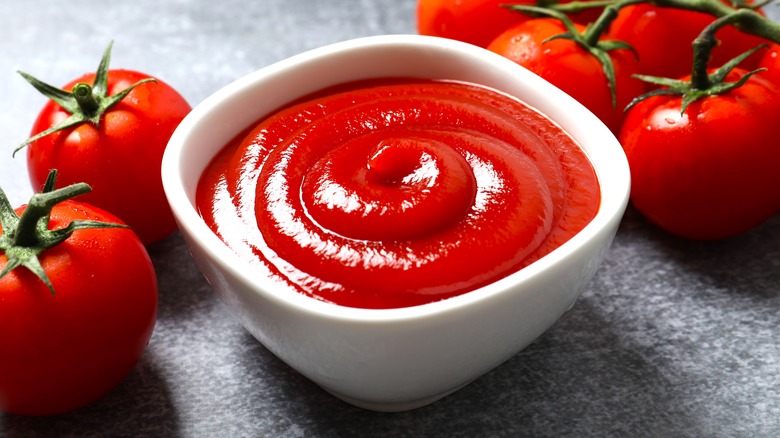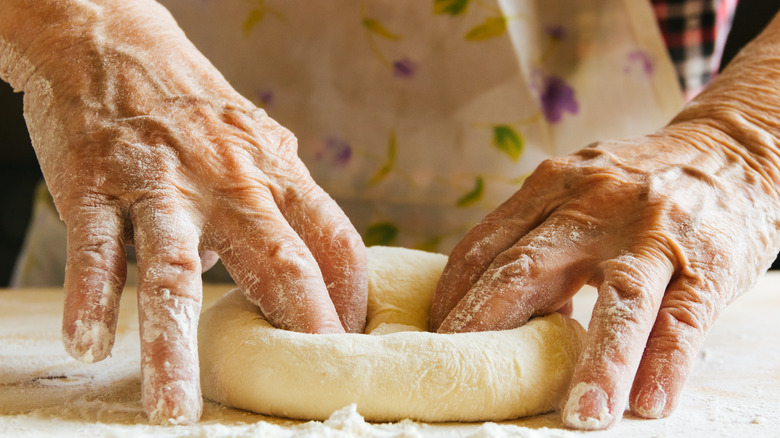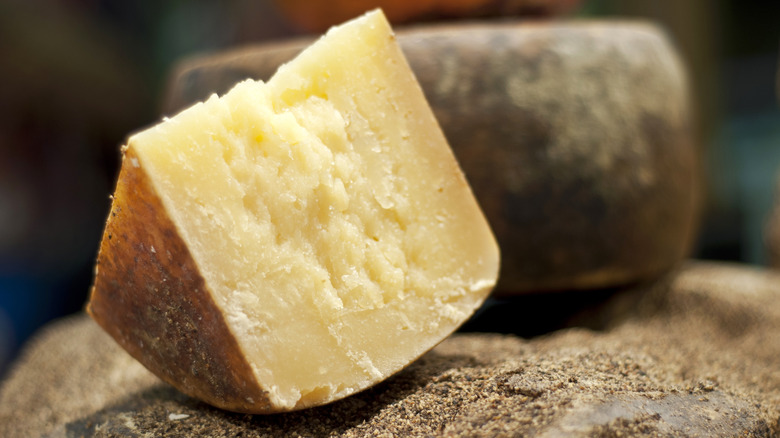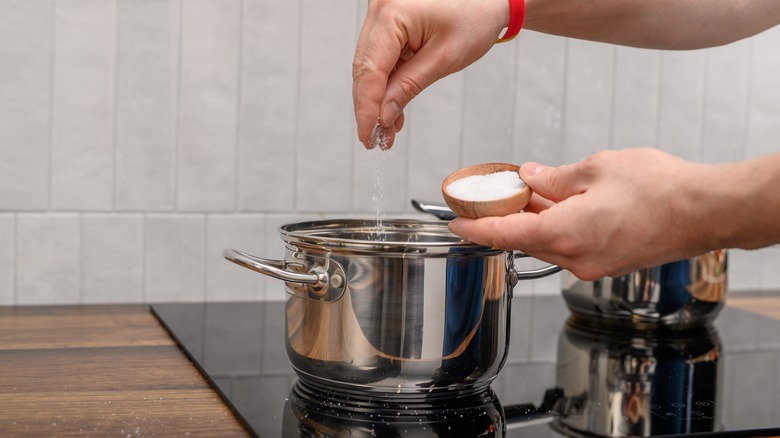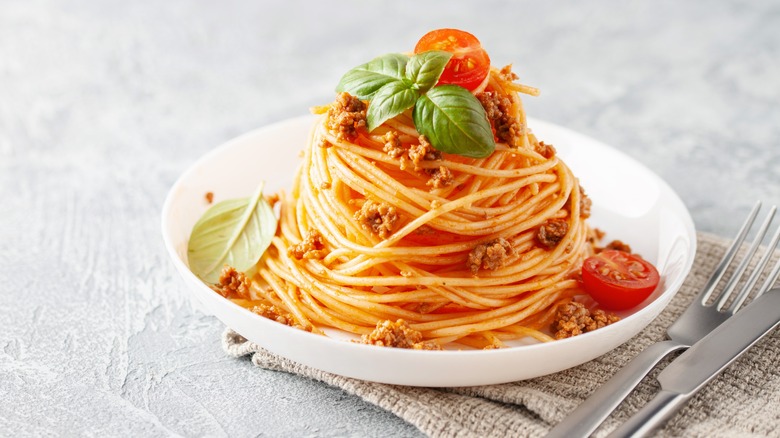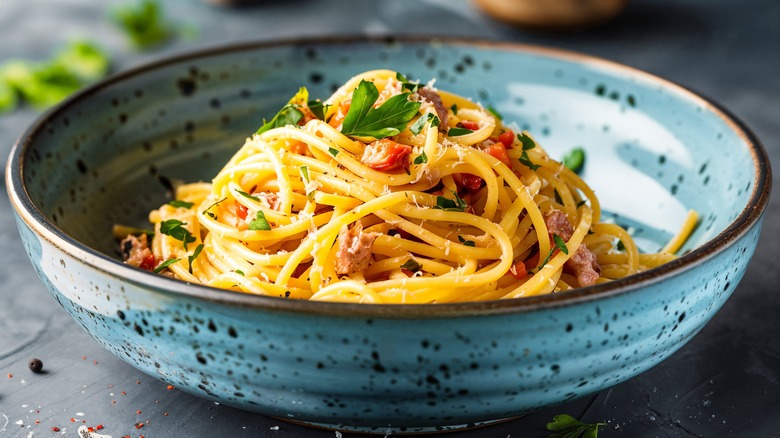The 10 Commandments Of Pasta, According To The Pasta Queen
If you've ever tried your hand at a homemade pasta recipe, you know that a lot of hard work, effort, and knowledge go into iconic Italian dishes. Accordingly, home chefs need a guiding light in the kitchen, one who's truly passionate about Italian cuisine in all its forms. Who better to offer such guidance than The Pasta Queen herself, Nadia Caterina Munno?
Cookbook author, social media star, and member of a legendary pasta-making family based in Rome (in business since the 1800s), Munno added "television host" to her lengthy list of accolades when her show, "The Pasta Queen," hit Prime Video in 2024. It follows Munno on a culinary journey through her home country of Italy. In addition to showcasing the beauty of Italy and its people, "The Pasta Queen" also offers a personal glimpse into Munno's kitchen as she prepares classic dishes. When it comes to pasta, Munno adheres strictly to traditional techniques and recipes, which she has dubbed "The 10 Commandments of Pasta." We've compiled her list of Commandments here.
1. Thou shalt not overcook the pasta
For those who've tried to learn everything they need to know about cooking pasta al dente but have fallen short of this optimal level of doneness (remember that al dente means "to the tooth" in English), The Pasta Queen has some words of caution about overcooking. Overcooked pasta often has an unpleasantly mushy texture, as opposed to the toothsome quality that makes the dish a joy to eat. To avoid this unwanted outcome, check the texture of your pasta frequently, starting about three minutes before it's supposedly finished cooking.
2. Thou shalt not break the spaghetti
The Pasta Queen is adamant about leaving your spaghetti intact before cooking, stating, "Every time a spaghetti is broken, a nonna loses their willpower!" This is the one spaghetti rule that you should never break (pun intended), as breaking spaghetti prior to cooking can dampen a dish's visual appeal and prohibit you from twisting the al dente noodles around the end of your fork.
3. Don't burn the garlic
Nadia Caterina Munno considers burning garlic a "blasphemous" act in the kitchen. From a practical perspective, overcooking garlic can result in an exceedingly bitter flavor that will overwhelm all the other elements in a pasta dish. You can avoid the tragedy of burned garlic by keeping an eye on the frying pan's heat and cooking the ingredient in some sort of liquid, such as water or broth.
4. Never waste the tears of the gods
"Tears of the gods" is another way of saying pasta water, which The Pasta Queen considers to be a "precious" commodity. You can save your pasta water and sprinkle it on cooked noodles to ensure that your sauce will coat every square inch. You can also incorporate it directly into homemade marinara sauce to create a velvety consistency. You can even freeze pasta water for up to six months to ensure you always have some on hand.
5. Thou shalt not put ketchup on pasta
One would be hard-pressed to imagine a situation in which it would be considered acceptable to pair pasta with ketchup (except maybe in some kind of post-apocalyptic survival scenario). The Pasta Queen goes one step further and likens the combination to a "sin," and it's relatively easy to see why. Flavor-wise, ketchup and pasta sauce have very little in common, as ketchup is much sweeter in flavor and has a far thicker consistency.
6. Honor thy nonna
"Nonna" is Italian for "grandmother," and Nadia Caterina Munno's frequent use of the word illustrates her reverence for all the amazing cooks that came before her. This beloved matriarchal figure often plays a crucial role in the Italian family structure, in addition to whipping up delicious feasts that will be talked about for generations to come.
7. Don't put cheese on seafood (unless it's pecorino)
Not mixing seafood and cheese is a rule that extends beyond Italian cuisine, as robustly flavored cheeses are likely to overpower seafood's flavor. The Pasta Queen mostly abides by this rule, albeit with one caveat. Pecorino, which features a salty earthiness that's punctuated by minor tangy notes, is the one cheese that can be combined with fish and seafood without concerns about its flavor overwhelming other aspects of a dish.
8. Thou shalt salt the pasta water once it's boiling
Salting pasta water serves two essential purposes. Along with enhancing the noodles' flavor, salt also helps them retain their desired texture by stopping the pasta from becoming increasingly sticky or gummy. According to The Pasta Queen, salt should only be added when the water is boiling, as the roiling water ensures that the salt dissolves as swiftly as possible.
9. Thou shalt honor the pasta gods
Who are the pasta gods, you ask? As explained by Nadia Caterina Munno, the pasta gods are "ever-watching, and they're up there with the nonnas of the world." Remember that food is a major aspect of Italian culture, and chefs like Munno emphasize the importance of abiding by recipes, rules, and traditions. In this sense, honoring the pasta gods could mean following the traditions developed by preceding Italian chefs to ensure the resulting dish exceeds all expectations.
10. Thou shalt not add cream to the carbonara
A traditional carbonara recipe should feature just four ingredients: pasta, guanciale (aka cured pig cheek), pecorino, and egg yolks (plus salt and pepper). Much to the ire of Nadia Caterina Munno and other purists of Italian cuisine, some recipes add dairy into the mix, which they consider a major faux pas. The Pasta Queen even criticized Gordon Ramsay's carbonara for incorporating crème fraîche into his recipe, which shows that Munno not only has impressive culinary chops — she also has guts.

